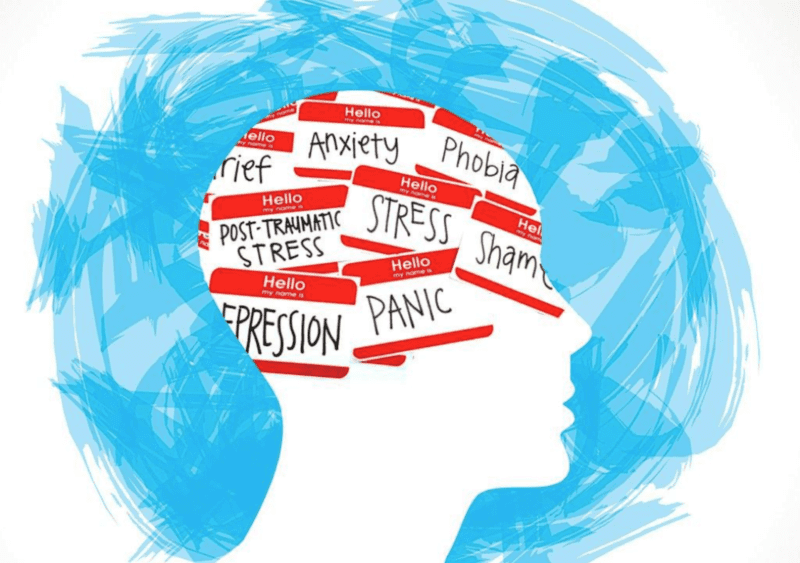National Issues
Understanding and Prioritizing Mental Health: A Comprehensive Guide -By Abdullahi Rufaida Hamidu
In the intricate tapestry of our existence, mental health emerges as a cornerstone of well-being. As we’ve journeyed through the various facets of mental health – from defining its essence to acknowledging common challenges, exploring influencing factors, addressing stigma, and promoting proactive well-being – it becomes evident that understanding and prioritizing mental health is not just an individual endeavor but a collective responsibility.

In a world where our physical health often takes the spotlight, the importance of mental health cannot be overstated. It is a fundamental component of our overall well-being, influencing how we think, feel, and navigate life’s challenges. As we delve into the intricate landscape of mental health, it becomes evident that understanding and prioritizing it is not just an individual concern but a societal imperative.
The prevalence of mental health challenges has reached staggering levels, affecting individuals from all walks of life. It’s time to shine a light on this crucial aspect of our existence and explore the multifaceted dimensions of mental well-being.
At its core, mental health encompasses the emotional, psychological, and social well-being of an individual. It influences how we think, feel, and act, shaping our ability to handle stress, relate to others, and make choices. Mental health exists on a continuum, with fluctuations being a natural part of the human experience.
Understanding mental health involves recognizing that it is not a static state but a dynamic interplay of factors that contribute to our overall equilibrium. Just as we prioritize physical health, acknowledging the significance of mental well-being is the first step toward fostering a balanced and fulfilling life.
In our complex and fast-paced world, individuals often grapple with various mental health challenges. Anxiety, depression, and other disorders have become pervasive, affecting people across age groups and backgrounds. The impact of these challenges extends beyond the individual, influencing relationships, work, and overall quality of life.
By acknowledging the prevalence of these challenges, we take a crucial step toward fostering empathy and understanding. Mental health is not a solitary journey but a shared human experience, and recognizing this commonality can contribute to breaking down the barriers that surround mental health discussions.
Understanding mental health requires recognizing the intricate interplay of various factors. Both biological and environmental elements contribute to the tapestry of our mental well-being. Biological factors, such as genetics and brain chemistry, lay the foundation, while environmental influences, including stressors, lifestyle choices, and social connections, further shape our mental health.
The fast-paced nature of modern life, coupled with the demands of work, relationships, and societal expectations, can create stressors that impact mental well-being. Exploring these factors helps us grasp the nuanced dynamics that contribute to the ebb and flow of our mental health.
Despite progress in understanding mental health, a pervasive stigma still surrounds it. Misconceptions and stereotypes contribute to a culture of silence, making it challenging for individuals to openly discuss their mental health struggles. Breaking down this stigma is crucial for fostering a supportive environment where seeking help is not only accepted but encouraged.
By addressing common misconceptions surrounding mental health, we contribute to building a more compassionate and empathetic society. It is essential to recognize that mental health is a spectrum, and everyone deserves understanding and support.
Maintaining good mental health involves proactive efforts toward self- care and a holistic approach to well- being. Incorporating regular exercise, practicing mindfulness, and fostering healthy social connections are vital components of a well-rounded mental health regimen.
Self-awareness plays a key role in identifying early signs of stress or discomfort, allowing individuals to take proactive steps to address their mental well-being. Emphasizing the importance of a balanced lifestyle contributes to creating a foundation for resilience in the face of life’s challenges.
Recognizing when to seek professional assistance is a crucial aspect of prioritizing mental health. Mental health professionals, including therapists, counselors, and psychiatrists, offer valuable support and tools to navigate challenges effectively. Seeking help is a sign of strength and resilience, and it plays a pivotal role in one’s journey toward improved mental well-being.
Understanding the available resources and removing barriers to accessing mental health services are essential steps in promoting a culture where seeking professional help is normalized. Encouraging open conversations about mental health reduces the stigma associated with reaching out for support.
In the intricate tapestry of our existence, mental health emerges as a cornerstone of well-being. As we’ve journeyed through the various facets of mental health – from defining its essence to acknowledging common challenges, exploring influencing factors, addressing stigma, and promoting proactive well-being – it becomes evident that understanding and prioritizing mental health is not just an individual endeavor but a collective responsibility.
By fostering open conversations, dispelling stigma, and encouraging both self-care and professional support, we pave the way for a society where mental health is valued as highly as physical health. As we collectively strive toward this goal, may we embrace the understanding that mental well-being is a dynamic journey, one that deserves our attention, compassion, and continuous effort.
Conclusion:
Embracing a Collective Responsibility for Mental Well-being
Abdullahi Rufaida Hamidu holds a Bsc in International Relations from ISCG University, Benin Republic. As a passionate human rights advocate and critical thinker, she is dedicated to fostering societal well-being. Abdullahi has furthered her understanding of mental health through online courses, reflecting her commitment to holistic awareness and advocacy.




















